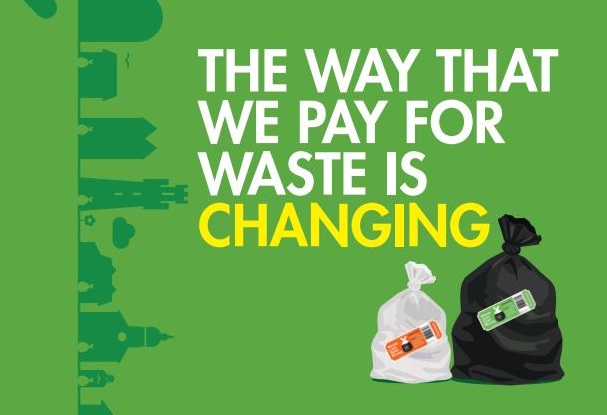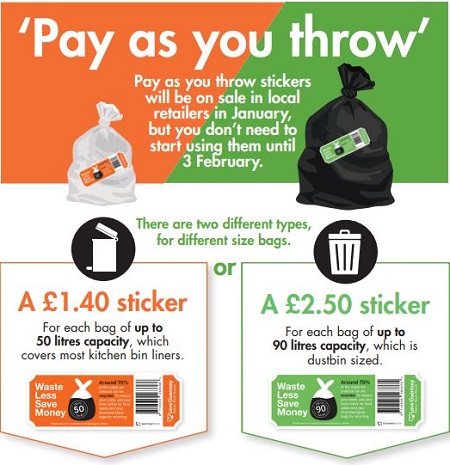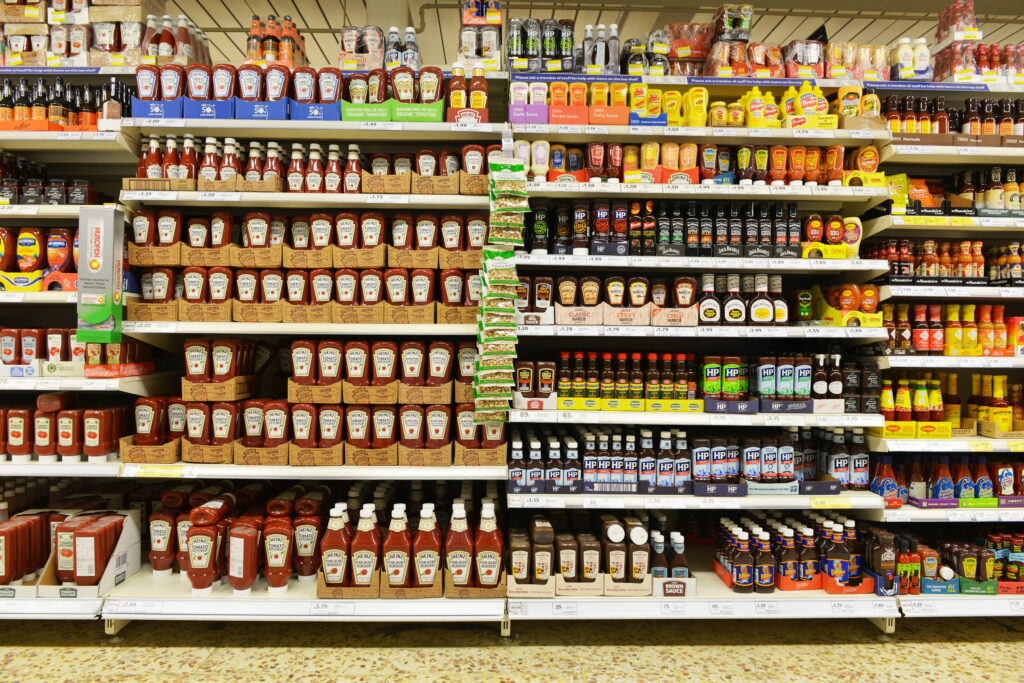
The system – in which residents buy stickers which must be put on every bag of non-recyclable waste they want to have collected – has helped to boost recycling rates on the island, despite some criticism of the scheme before its roll out.
“We held our breath and there was some nervousness and fairly quickly we breathed out because all of the gloomy predictions didn’t materialise,” explained Jim Anderson, projects liaison officer at States of Guernsey, the island’s governing authority.
“We were always confident that the vast majority of people may not have been wholly on-board, but they are law abiding and community minded, so they won’t go out of their way to make their neighbourhood look like an eyesore.”
Recycling rates
Figures are yet to be finalised, but States of Guernsey is confident that its recycling rate will have risen above 60% – in fact, they are hoping it will be much higher. This would be a significant increase upon the 2017/18 figure of 50%.
Mr Anderson says he believes “a really big step change” has taken place in local attitudes – though much of this came with other collection changes, rather than PAYT.
He said: “We are looking at participation for food waste at up to 85%. That’s remarkable we were not expecting that level of uptake initially.”
“Those who make the effort to reduce their waste and recycle as much as they can will see the rewards of that.”
Food waste collections were brought in last year when processing facilities were developed on Guernsey. Glass recycling collections were also started in 2018, before the introduction of PAYT.
History
Though the PAYT system may seem a dramatic standalone policy, it is in fact the end result of a long transition to a more sustainable waste system. Though land is at a premium on the 25-square-metre island, landfill had historically been relied upon.
“We had the remains of a quarrying industry which for the last five decades had been filled in with waste. But in the 1990s we ran out of quarries,” said Mr Anderson.
In 2010 a new consultation on how Guernsey would manage their waste was held.
“The strategy in a nutshell was to reduce waste, recycle what we can and whatever is left at the end we will export for energy recovery,” Mr Anderson continued, noting that an on-island Energy from Waste (EfW) facility had proved unworkable due to scale and declining tonnages.
Instead residual waste is exported as RDF by Geminor – it is shipped to southern Sweden and processed at the Torsvik EfW facility in Jonkoping. (see letsrecycle.com story)

Mr Anderson said: “As part of enabling people to recycle as much as possible and to reduce where we can we decided that a key part of the strategy was going to be PAYT.”
Compliance
Compliance with the PAYT scheme has been good, according to States of Guernsey. Mr Anderson says between 20 and 30 bins are reported as not having a sticker on each round, rising to 50 on collections in the most densely populated areas on the island which is home to just over 60,000 people.
Collections crews use a GPS-enabled app to report where bags have been left for collection without the correct sticker placed on them.
The compliance team then follows up on these locations the next day – Mr Anderson noted that these have generally been dealt with by residents by the time staff investigate and the local authority does not have to take any further action.
He is keen to characterise most of this non-compliance as accidental – people putting out their waste and forgetting to add a sticker – and draws a line between deliberate fly-tipping and non-stickered waste. States of Guernsey’s website notes that the inconvenience of having to deal with uncollected waste is the main deterrent for those not using stickers, with the fixed penalty of £40 per bag only issued as a last resort.
Mr Anderson also dismisses problems that PAYT could cause in flats and communal housing.
He said: “Social housing tenants are brilliant, they are not our hot spots which people sometimes suggest they would be.”
“But we worked to unwind communal arrangements as best we could. If you look at apartments with communal bin stores we have put the onus on the management agents.”

Logistics
Mr Anderson believes the long planning process for PAYT has kept any unexpected issues at bay. Problems ranging from resident’s fears that the stickers could fall off to concerns from collection crews that the stickers may not be visible when they work at night were worked out before implementation.
States of Guernsey is clearly proud of the initial impact the new system has had – and the impact it could have on moving residents towards a more sustainable way of disposing of their waste.
“Those who make the effort to reduce their waste and recycle as much as they can will see the rewards of that,” Mr Anderson commented.










Subscribe for free